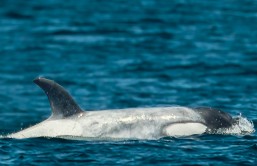NASA's Plankton, Aerosol, Cloud, Ocean Ecosystem (PACE) satellite is scheduled to launch at 01:33 Eastern Time (06:33 UTC) on Wednesday (Feb. 7) on top of SpaceX's Falcon 9 rocket.
🚀PACE LAUNCH UPDATE:
— NASA's Launch Services Program (@NASA_LSP) February 6, 2024
NASA and SpaceX are standing down from the Feb. 6 launch of the PACE mission due to unfavorable weather conditions. Launch is now targeted for 1:33 a.m. EST Wednesday, Feb. 7. Both the PACE satellite & the Falcon 9 remain healthy.
➡️ https://t.co/NuCuZqfVGw pic.twitter.com/27vGQFnnq3
The launch was supposed to happen on Tuesday (Feb. 6) but poor weather conditions scrubbed the launch attempt to make way for the next opportunity, Space.com reported.
Ahead of the launch, NASA and SpaceX executives gathered to discuss the impact the PACE mission would have on climate science as it would monitor the interaction between Earth's oceans and atmosphere.
"Understanding how ocean life interacts with the atmosphere and the global climate is one of the secrets of the universe right here at home. Aerosols that cycle through the ocean and atmosphere are a factor in how clouds form and how weather systems behave," NASA Associate Administrator Jim Free said at a press conference on Monday (Feb. 5). "But exactly how that process works is a scientific mystery. Unraveling it is one big goal of the PACE mission in line of course with NASA's charge to explore the unknown in air and space."
Read Also: Peregrine Lander Makes Fiery Return to Earth After Failed Moon Mission
Understanding Earth's Features
Free also said during the conference that, upon launch, PACE would be the third NASA satellite in Earth orbit that would collect vital data on the planet's land, ocean, atmosphere, and ice.
The mission's data would be used by scientists and policymakers to safeguard against the threat of global climate change.
Meanwhile, NASA Earth Science Division director Karen St. Germain explained that PACE would use its vantage point to investigate tiny microorganisms like phytoplankton that play a huge role on Earth as it is composed of 70% water.
"Phytoplankton are at the base of the marine food chain," she added. "They serve our fisheries and the health of the oceans. They are also responsible for absorbing a tremendous amount of carbon dioxide through photosynthesis and converting that into oxygen in the atmosphere."
Aside from phytoplanktons, PACE would be studying aerosols, tiny particles floating in Earth's atmosphere that could "reflect a lot of the Sun's energy."
Related Article: NASA Retires Mars Ingenuity Helicopter After Exceeding Expectations









